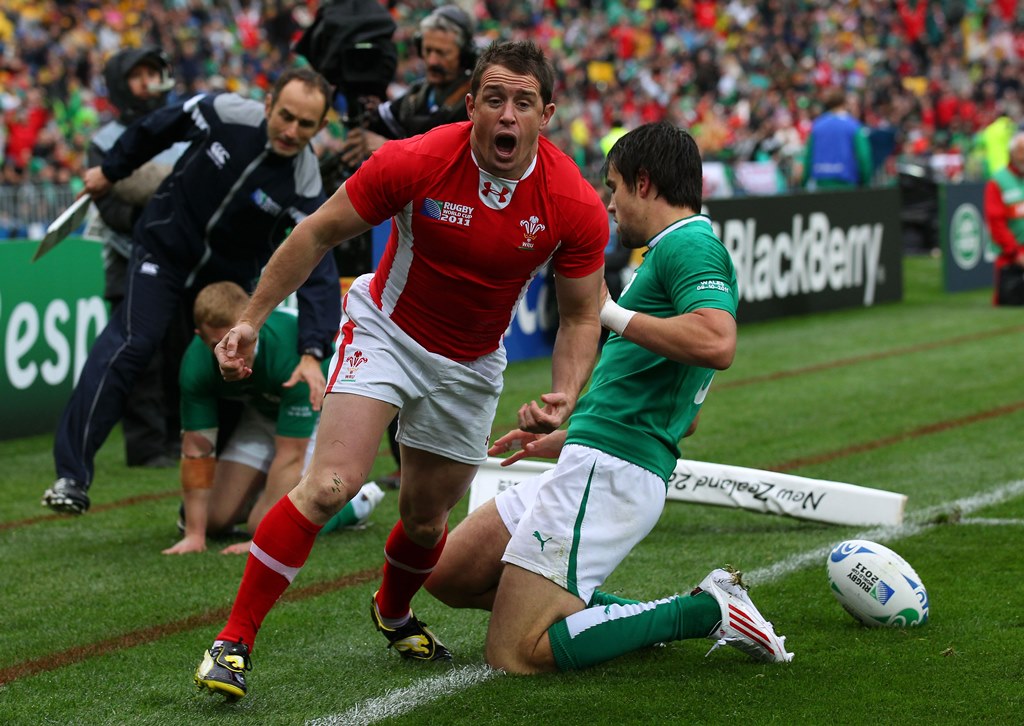Jackson column: Wales’ route to hitting expectations at the World Cup

66774428
Wales stride into World Cup year knowing that anything short of the semi-finals in Japan next autumn will be a failure. Heaven knows, there have been enough of those.
For the ninth global jamboree they have been blessed by a friendlier pool than in the previous eight, friendly but not without a trap more likely to be laid by the exuberant Fijians than the lame Wallabies.
On the dangerous assumption of every contender measuring up to their official ranking, Wales would then look forward to the enticing prospect of a quarter-final against Argentina or France leading to a semi-final against Ireland, or South Africa.
No road map at a World Cup is without its potholes, speed bumps and dead ends but the one Wales will be poring over once the Six Nations is done appears to be relatively straight forward, so much so that they could hardly have improved on it ha Wales stride into World Cup year knowing that anything short of the semi-finals in Japan next autumn will be a failure. Heaven knows, there have been enough of those.
For the ninth global jamboree they have been blessed by a friendlier pool than in the previous eight, friendly but not without a trap more likely to be laid by the exuberant Fijians than the lame Wallabies.
On the dangerous assumption of every contender measuring up to their official ranking, Wales would then look forward to the enticing prospect of a quarter-final against Argentina or France leading to a semi-final against Ireland, or South Africa.
No road map at a World Cup is without its potholes, speed bumps and dead ends but the one Wales will be poring over once the Six Nations is done appears to be relatively straight forward, so much so that they could hardly have improved on it had they made the draw themselves.
Trying to make sense of it at such an early stage is a sure way to invite ridicule given rugby‘s kaleidoscopic nature. A short shift of the lens and the picture changes as it will from the start of the Six Nations with the world’s No. 2, Ireland, at home to the world’s No. 4, England.
At this juncture Wales stand as the biggest obstacle to a New Zealand-Ireland final, more from an Irish perspective than an All Black one. That the Grand Slammers have a chronic record of under-achievement at World Cups is probably down to the Welsh more than anyone else.
If their pool win over Donal Lenihan’s Ireland in Wellington at the inaugural tournament in 1987 was too long ago to be of any relevance, then the outcome of the last all-Celtic affair in the New Zealand capital will be remembered on the far side of the Irish Sea for all the wrong seasons.
Ireland’s last fling with the holy trinity of Brian O’Driscoll, Paul O’Connell and Ronan O’Gara in unison resulted in the most anti-climactic of knock-outs, delivered in the 2011 quarter-finals by probably the best Welsh performance of the many under Gatland’s command. Nobody in the Irish camp, from Joe Schmidt to the kit man, would dare say so but Wales are a team to be avoided, wherever possible.
They are still short of matching Ireland’s ruthless efficiency but Wales have at last outgrown their refusal to embrace an expectation of success.
Their psychology has changed, from a culture of inferiority into one of a squad whose self-belief has given them a winning mentality. The harder edge will be tested, if not against England at home halfway through the Six Nations then certainly by Ireland on the last day, also at home.
Win that and Ireland will still have more cause to give Wales a wide berth in Japan.
In that case, the rest will be thinking along exactly the same lines.d they made the draw themselves.
Trying to make sense of it at such an early stage is a sure way to invite ridicule given rugby’s kaleidoscopic nature. A short shift of the lens and the picture changes as it will from the start of the Six Nations with the world’s No. 2, Ireland, at home to the world’s No. 4, England.
At this juncture Wales stand as the biggest obstacle to a New Zealand-Ireland final, more from an Irish perspective than an All Black one. That the Grand Slammers have a chronic record of under-achievement at World Cups is probably down to the Welsh more than anyone else.
If their pool win over Donal Lenihan’s Ireland in Wellington at the inaugural tournament in 1987 was too long ago to be of any relevance, then the outcome of the last all-Celtic affair in the New Zealand capital will be remembered on the far side of the Irish Sea for all the wrong seasons.
Ireland’s last fling with the holy trinity of Brian O’Driscoll, Paul O’Connell and Ronan O’Gara in unison resulted in the most anti-climactic of knock-outs, delivered in the 2011 quarter-finals by probably the best Welsh performance of the many under Gatland’s command. Nobody in the Irish camp, from Joe Schmidt to the kit man, would dare say so but Wales are a team to be avoided, wherever possible.
They are still short of matching Ireland’s ruthless efficiency but Wales have at last outgrown their refusal to embrace an expectation of success.
Their psychology has changed, from a culture of inferiority into one of a squad whose self-belief has given them a winning mentality. The harder edge will be tested, if not against England at home halfway through the Six Nations then certainly by Ireland on the last day, also at home.
Win that and Ireland will still have more cause to give Wales a wide berth in Japan.
In that case, the rest will be thinking along exactly the same lines.
PETER JACKSON